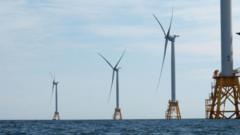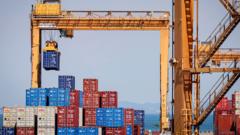Ayatollah Khamenei's change in strategy signals concerns over regime stability.
**Iran’s Supreme Leader Shifts Stance: Opening to U.S. Nuclear Talks**

**Iran’s Supreme Leader Shifts Stance: Opening to U.S. Nuclear Talks**
Iran considers nuclear negotiations amidst economic pressure and war fears.
In a surprising turn of events, Iran's Supreme Leader, Ayatollah Ali Khamenei, has signaled a willingness to engage in nuclear negotiations with the United States, following intense pressure from senior Iranian officials. Previously staunchly opposed to discussions with Washington, Khamenei faced a looming crisis characterized by severe economic downturns, escalating currency devaluation, and critical shortages of essential resources such as gas and electricity.
According to insiders, an urgent meeting was convened last month, involving Iran's president and leaders from judiciary and Parliament, wherein they urged Khamenei to reconsider his stance against negotiations. They asserted that the risks of refusing dialogue—including potential military action against Iran’s nuclear facilities—could threaten the very foundation of the regime.
The officials argued that the likelihood of military strikes on Iran's significant nuclear sites, Natanz and Fordow, was increasing. They warned that a refusal to negotiate could not only jeopardize Iran’s economic stability but might also instigate widespread domestic unrest, including protests and strikes.
Facing both internal and external pressures, Khamenei's newfound openness to talks could represent a crucial moment for Iran, as it navigates mounting challenges that threaten its political and economic landscape.
According to insiders, an urgent meeting was convened last month, involving Iran's president and leaders from judiciary and Parliament, wherein they urged Khamenei to reconsider his stance against negotiations. They asserted that the risks of refusing dialogue—including potential military action against Iran’s nuclear facilities—could threaten the very foundation of the regime.
The officials argued that the likelihood of military strikes on Iran's significant nuclear sites, Natanz and Fordow, was increasing. They warned that a refusal to negotiate could not only jeopardize Iran’s economic stability but might also instigate widespread domestic unrest, including protests and strikes.
Facing both internal and external pressures, Khamenei's newfound openness to talks could represent a crucial moment for Iran, as it navigates mounting challenges that threaten its political and economic landscape.





















